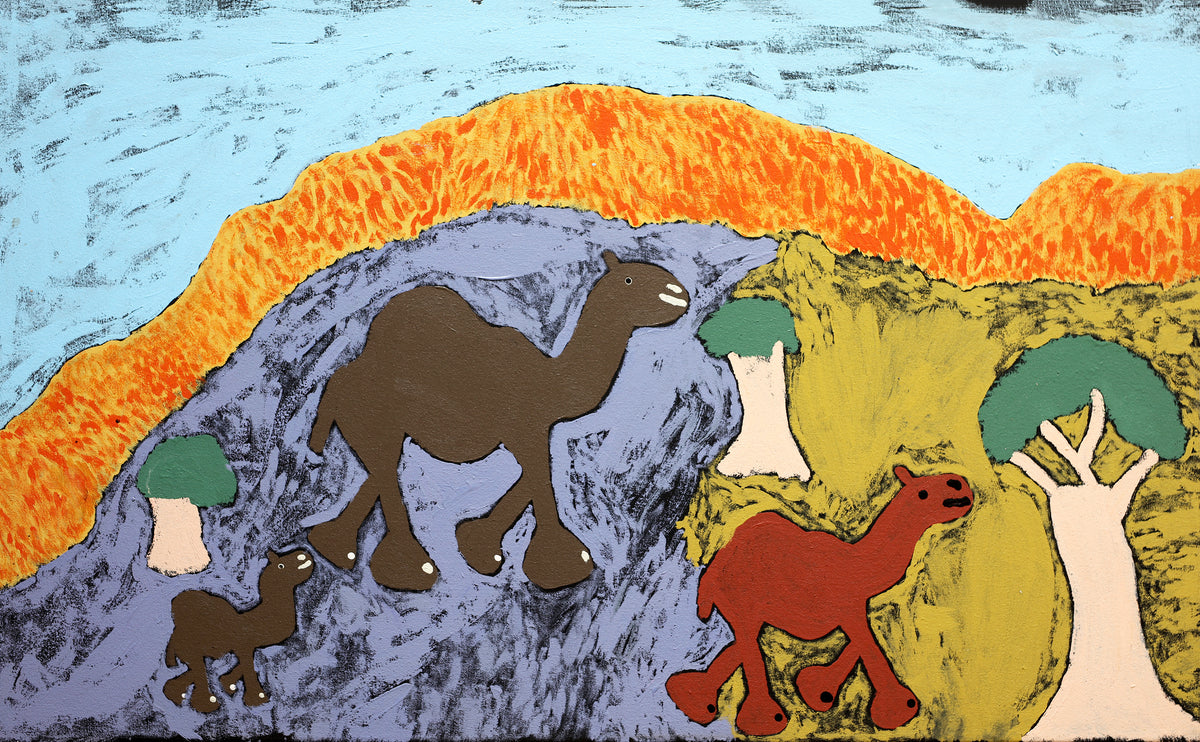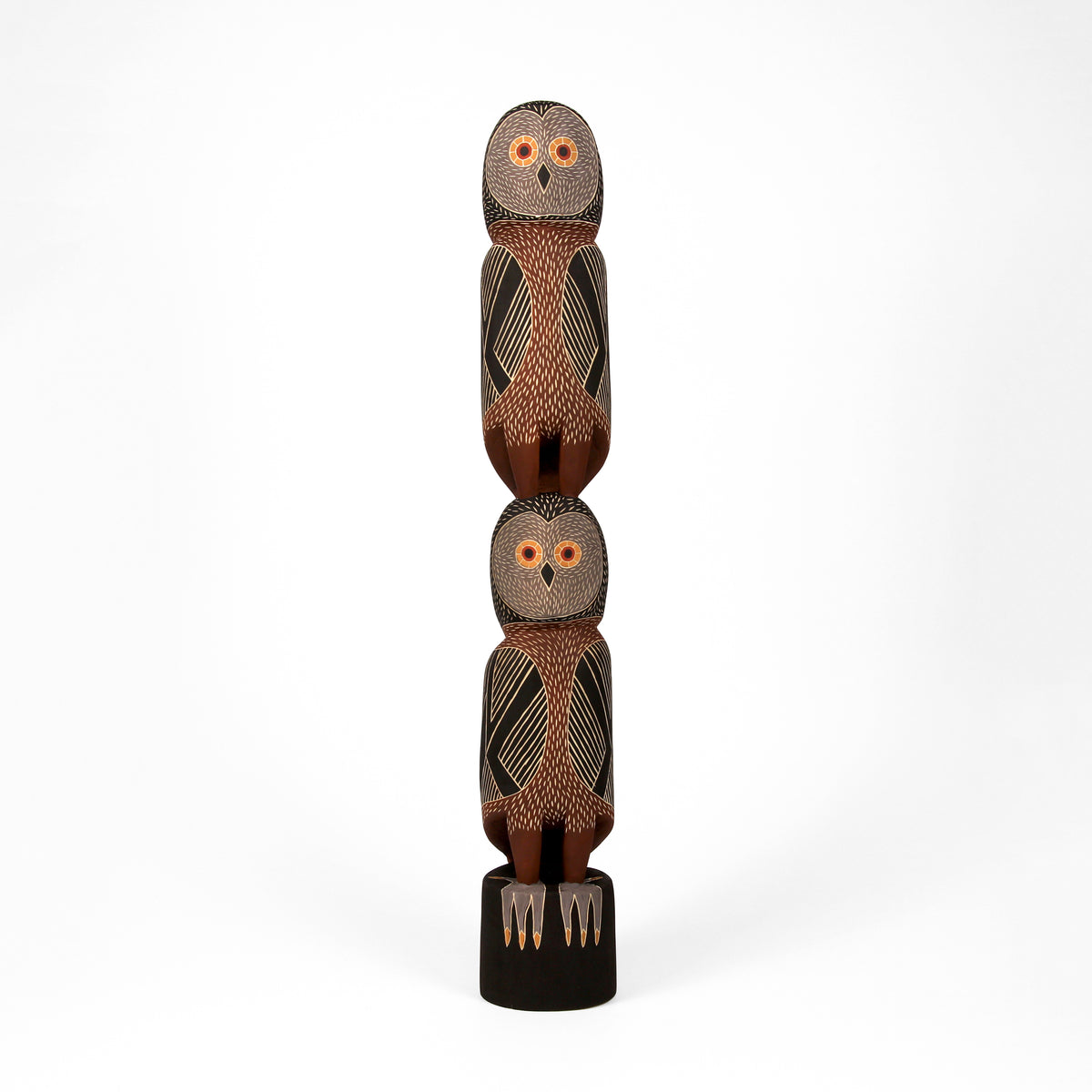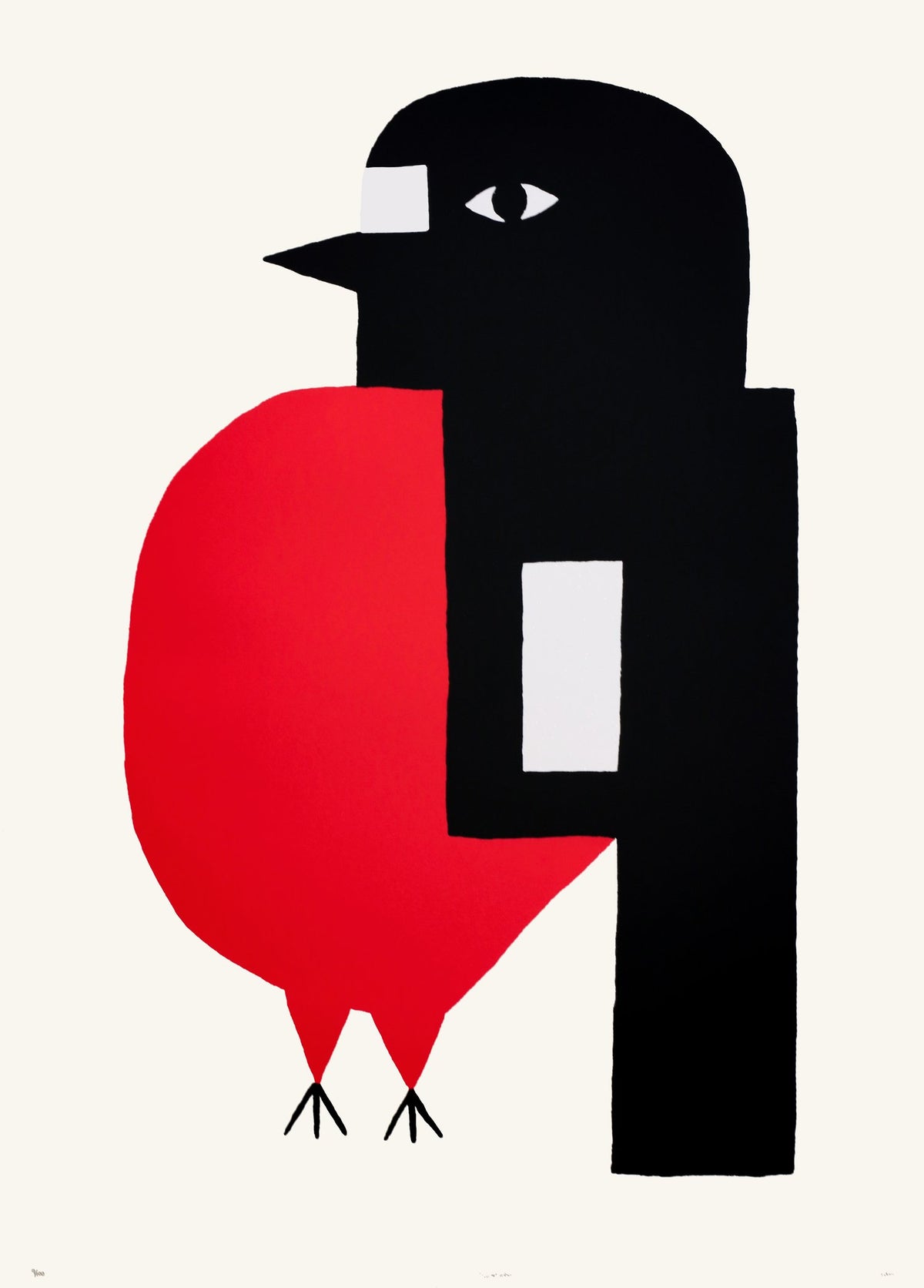Marlga (String Bag) 473-24
In the Ritharrngu language, 'garngu' refers to nets, but today it has come to symbolise the marine debris that invades our oceans — discarded fishing nets, shade cloth, nautical ropes, and other materials that pollute the waters and shorelines. Numburindi people first observed these ghost nets washing up on the beaches of Numbulwar in the 1980s. Today, these synthetic invaders are a pervasive threat in the Gulf of Carpentaria, harming marine life and disrupting traditional ways of life. Yet, from this environmental crisis, a new form of cultural expression has emerged.
For thousands of years, the Numburindi people have crafted string bags — or 'marlga' in Ritharrngu — for both practical and ceremonial purposes. Traditionally made from pandanus or bark fibres and dyed with ochre, these bags were used to carry bush tucker and even wild honey. In recent years, however, the Wilfred women of Numbulwar, known as the Wagilak women, have transformed the art of string bag making by incorporating repurposed ghost nets and shade cloth.
In the Dhuwa creation stories of Arnhem Land, the Wagilak Women are revered as Creation Sisters. Each sister carries a dilly bag that holds her spiritual power and sacred objects, used to shape the landscape and teach the laws that govern it. The land, under their care, flourishes and becomes beautiful.
Through their artistry, the Wilfred sisters use contemporary materials, like garngu, to tell a story of environmental decline and the responsibilities of custodianship. Their colourful acrylics — replacing the traditional ochre stripes — serve as both clan markers and expressions of individual creativity. These new string bags bridge the old ways with the new, honouring tradition while addressing the pressing environmental challenges of today.
Ghost nets, which account for around 40% of ocean plastic, symbolise both the degradation of the environment and the resilience of Numburindi people. The process of creating garngu string bags is an act of stewardship, with Numburindi rangers collecting the marine debris and bringing it to the art centre, where it is carefully cleaned, stripped, and repurposed by the artists.
As artist Rose Wilfred reflects, "Every time we make a ghost net bag, we think of how our ancestors made string bags, combining the old ways and the new. We like working in both ways."
SHIPPING
Brunswick Street Gallery would be pleased to arrange a quote for shipping if you are unable to collect directly from us.
Please be advised that oversized and/or fragile artwork or artworks being sent to remote areas may incur additional shipping costs.
FLEXIBLE PAYMENT
Afterpay, Laybuy
EXHIBITIONS
Artworks purchased from current exhibitions will be available for collection or shipping after the exhibition has ended.
–


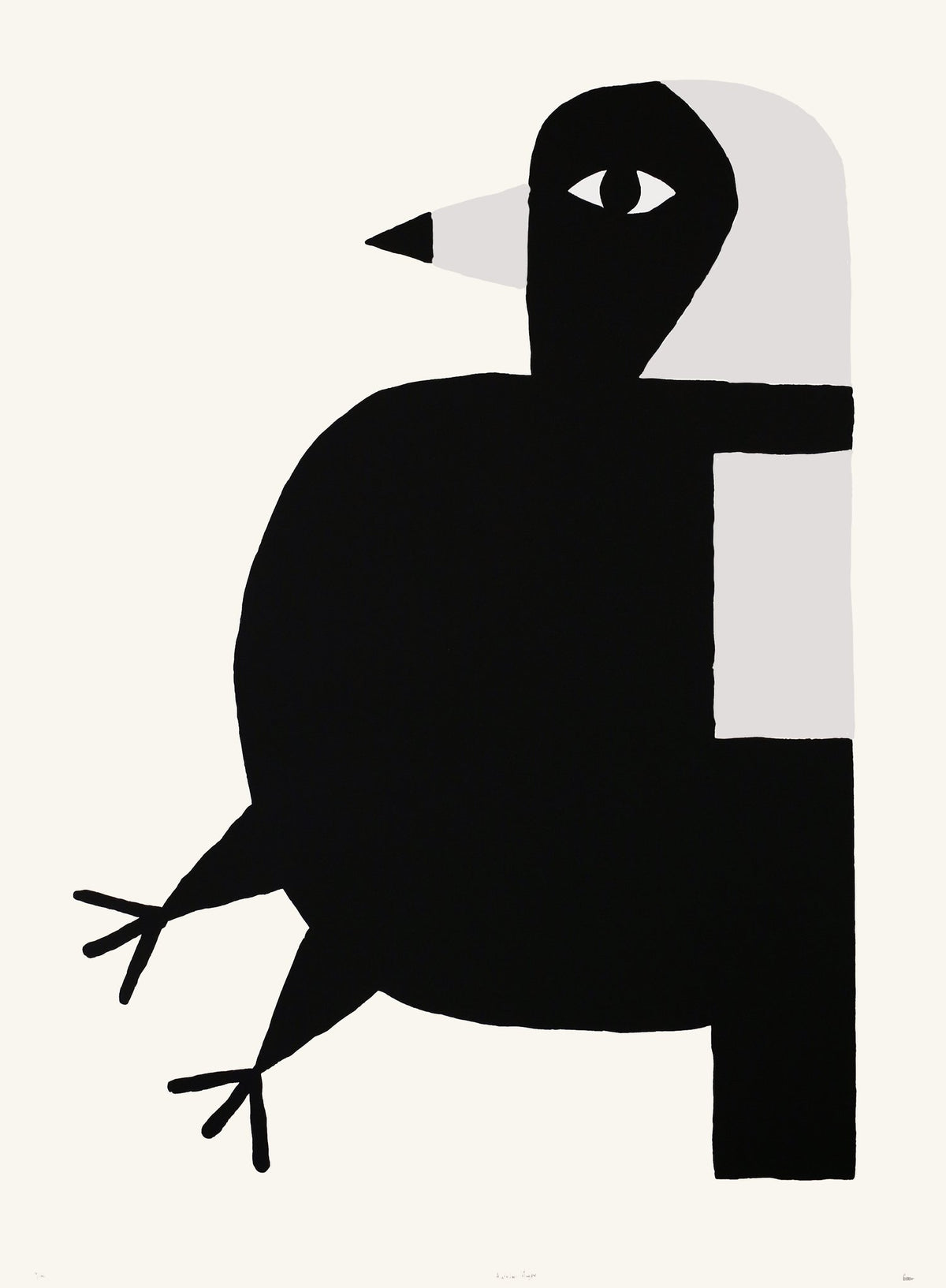
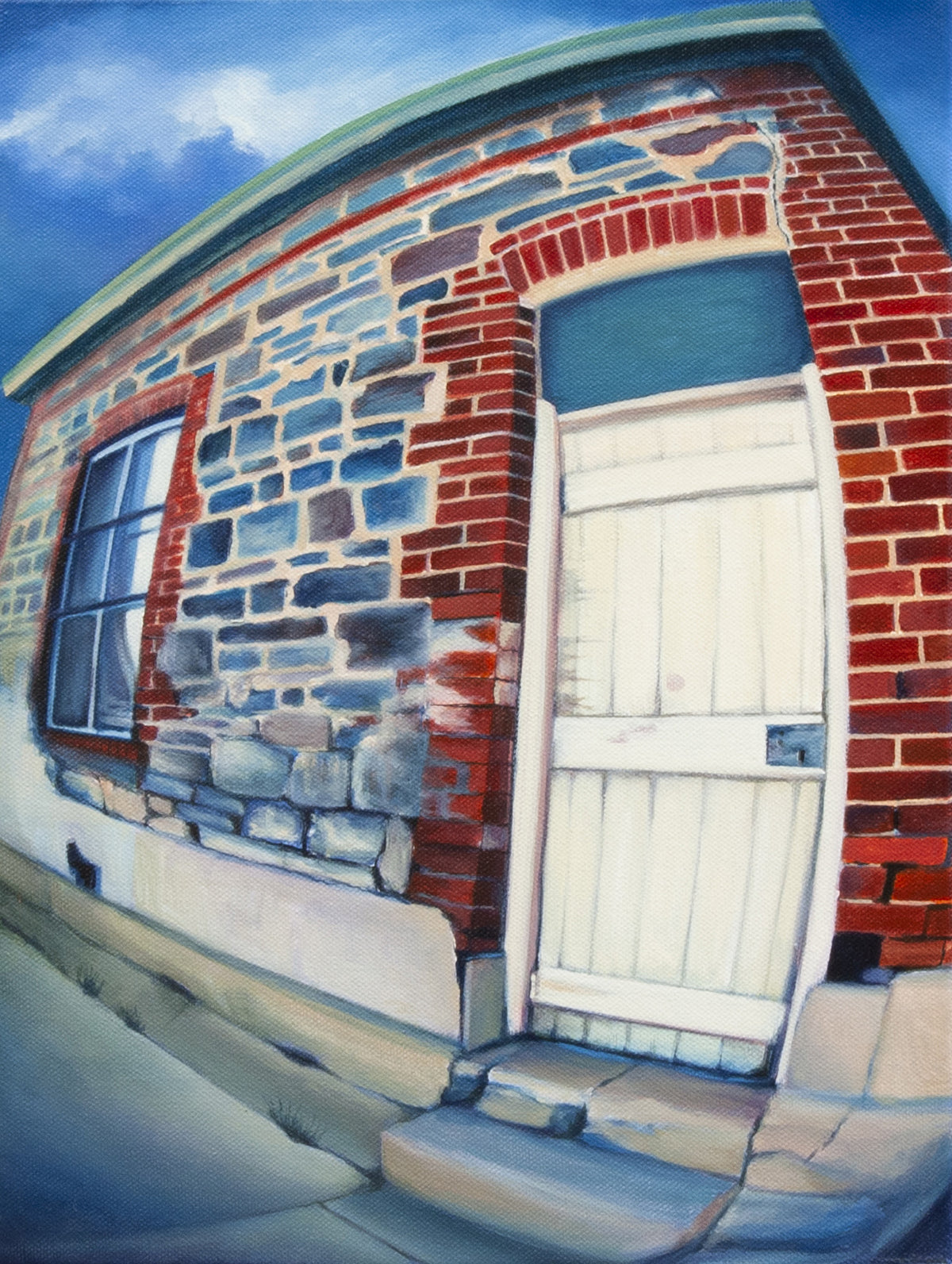
![Graham Rostron | Bininj Binihwokdi: Two people were talking [to each other] 1354-23-5/10](http://brunswickstreetgallery.com.au/cdn/shop/files/GrahamRostron1354-23-5_10.jpg?v=1692688640&width=1200)
